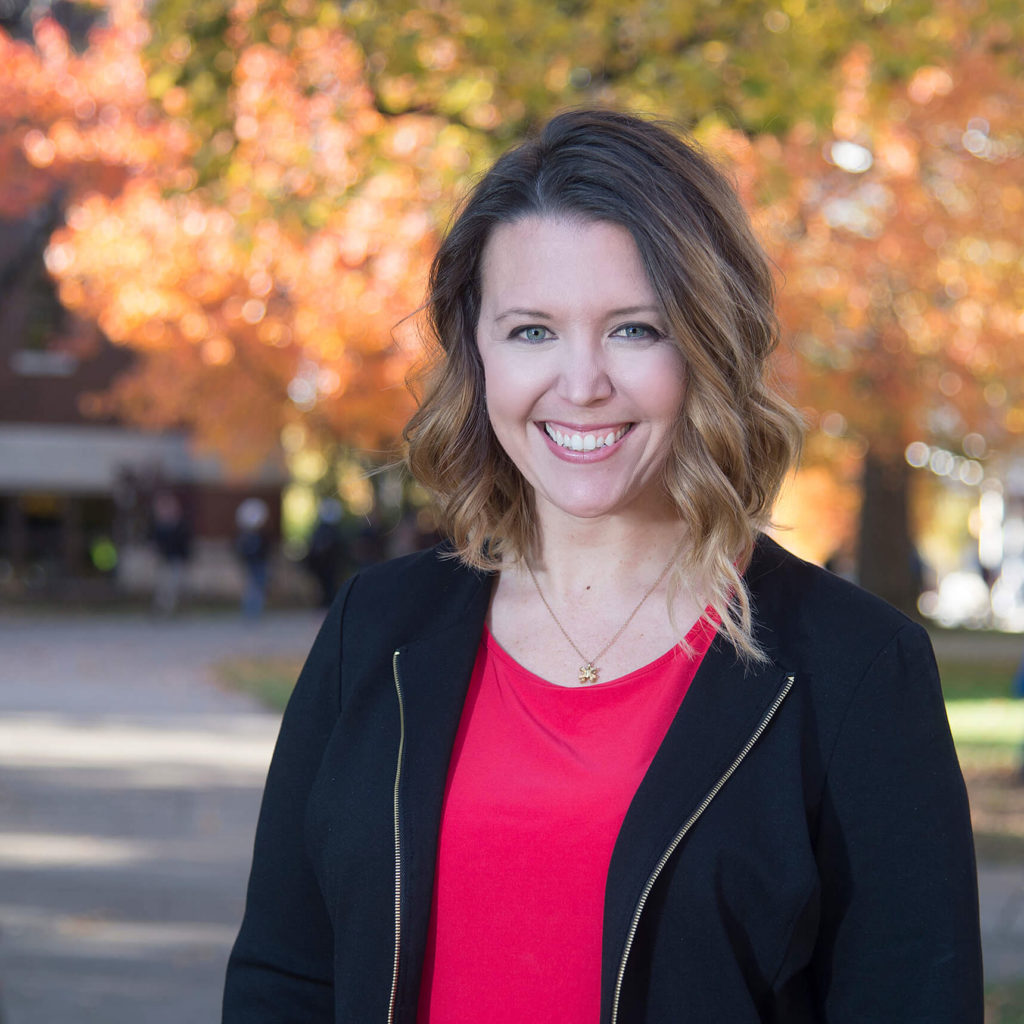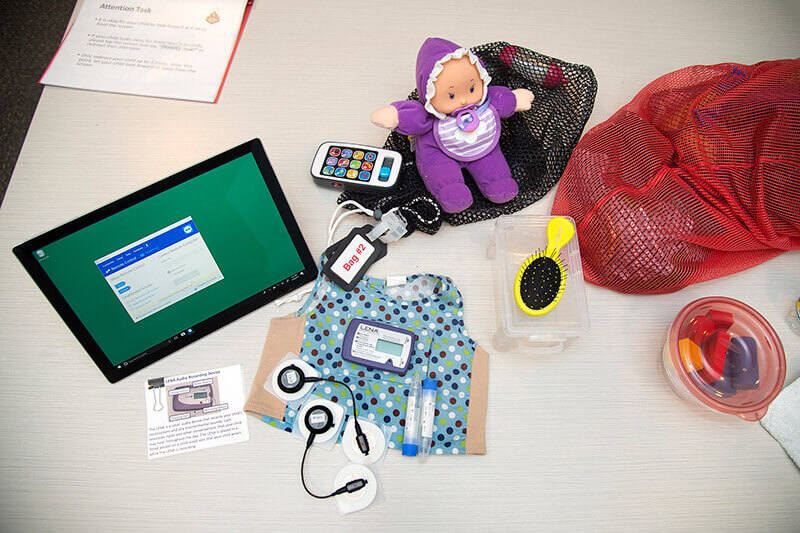Purdue study uses telehealth to help identify autism markers for babies and young toddlers
A long-distance telehealth study at Purdue University could help researchers identify autism symptoms in infancy, which could ultimately help children receive targeted therapy earlier.

“While we have made a lot of progress in autism as far as understanding what the symptoms look like, and how to treat and support families, we are still lacking reliable markers of autism before the first year,” said Bridgette Tonnsen, an assistant professor of clinical psychology, who studies autism in high-risk infants. “The brain changes rapidly during the first year of life, so if we are not detecting children until they are three or four we are missing a great opportunity to support their development. We certainly don’t want to rush a diagnosis, but having some pre-diagnostic interventions could significantly help these children for the long-term.”
Tonnsen (pronounced Tahn-sin) is leading the five-year study which is focused on prospective surveillance of autism symptom emergence in high-risk infants with fragile X and other neurogenetic syndromes. The nearly $1 million study is funded by the National Institutes of Health. Tonnsen is a member of the Purdue Autism Cluster.
Studies of autism emergence in infants often rely on high-risk samples who are known to exhibit higher rates of autism later in life, Tonnsen said. Most frequently, researchers will conduct these studies with infants who are at high-risk because they have a sibling who has already been diagnosed with autism, as autism occurs at a higher rate in siblings of affected individuals. Another less frequently studied high-risk group is children with certain neurogenetic disorders, such as a fragile X syndrome, which is a single gene disorder that can be detected at or before birth and is highly associated with enhanced risk for autism, as well as cognitive and mental health problems. Fragile X syndrome is a rare disorder, so a telehealth approach will make it possible for these children to participate in the study so their development can be evaluated without traveling to a lab or clinic. Approximately half of boys with fragile X meet criteria for autism. Tonnsen also will be studying children with Angelman syndrome who are at a similarly elevated risk for an autism diagnosis.

“About half of our sample will have autism, and what we learn from their developmental milestones can help us specifically identify what risk factors predict autism,” Tonnsen said. “We are partnering with the parents to coach them on how to do the research in their homes where the children will be more comfortable rather than traveling long distance to a lab. This will be more efficient, cost-effective, more family-friendly and, I think, as a result we will be able to collect more powerful data.”
What Tonnsen learns through these telehealth protocols also could help other researchers who need to work with isolated populations or clinicians diagnosing autism.
Each family will receive a research kit and training on how to administer activities that are often completed in lab settings, including monitoring heart activity and administering eye movement tasks. These tasks are designed to inform a variety of developmental processes, including attention, play behaviors, social communication and motor skills. The first part of the study will work with local families to evaluate the technology and research procedures before families are recruited across the country for home-based telehealth assessment.
Tonnsen, who leads the Neurodevelopmental Family Lab, also is collaborating with Donald Lynam, distinguished professor of psychology; Amanda Seidl, professor of speech, language and hearing science; Bart Collins, clinical professor of communication; and Peristera Paschou, associate professor of biological science.
Learn more about autism research at Purdue

The College of Health and Human Sciences, through the multidisciplinary Purdue Autism Cluster, is breaking old barriers in autism research and forming collaborations unheard of a generation ago. Read More
Writer: Amy Patterson Neubert, 765-494-9723, apatterson@purdue.edu
Source: Bridgette Tonnsen, 765-494-6754, btonnsen@purdue.edu